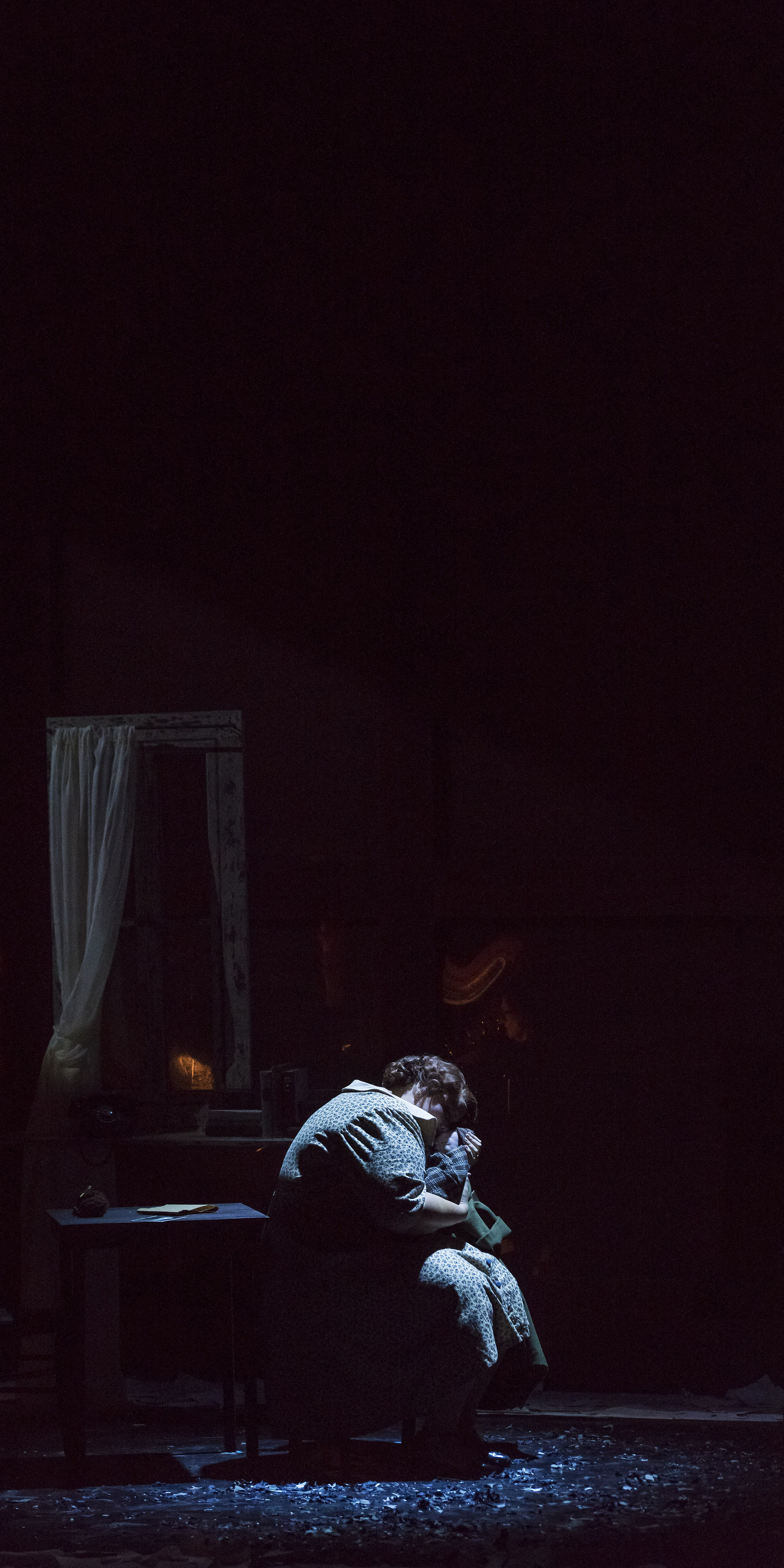The Consul
THE CONSUL
Scenic Designer: Cameron Anderson; Costume Designer: Glenn Avery Breed; Lighting Designer: Brandon Stirling Baker
Lawrence Edelson, Director
Opera Saratoga - 2018
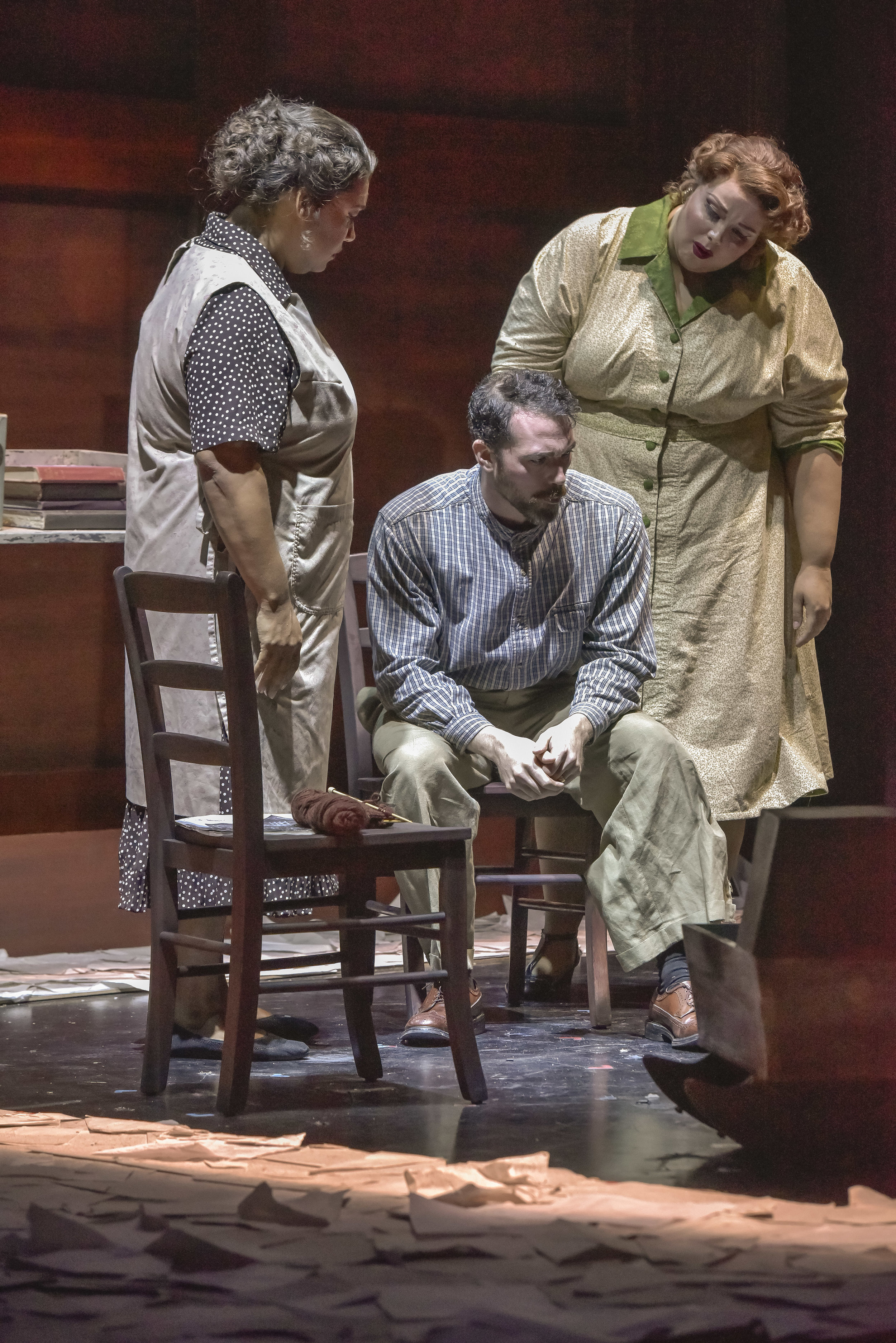
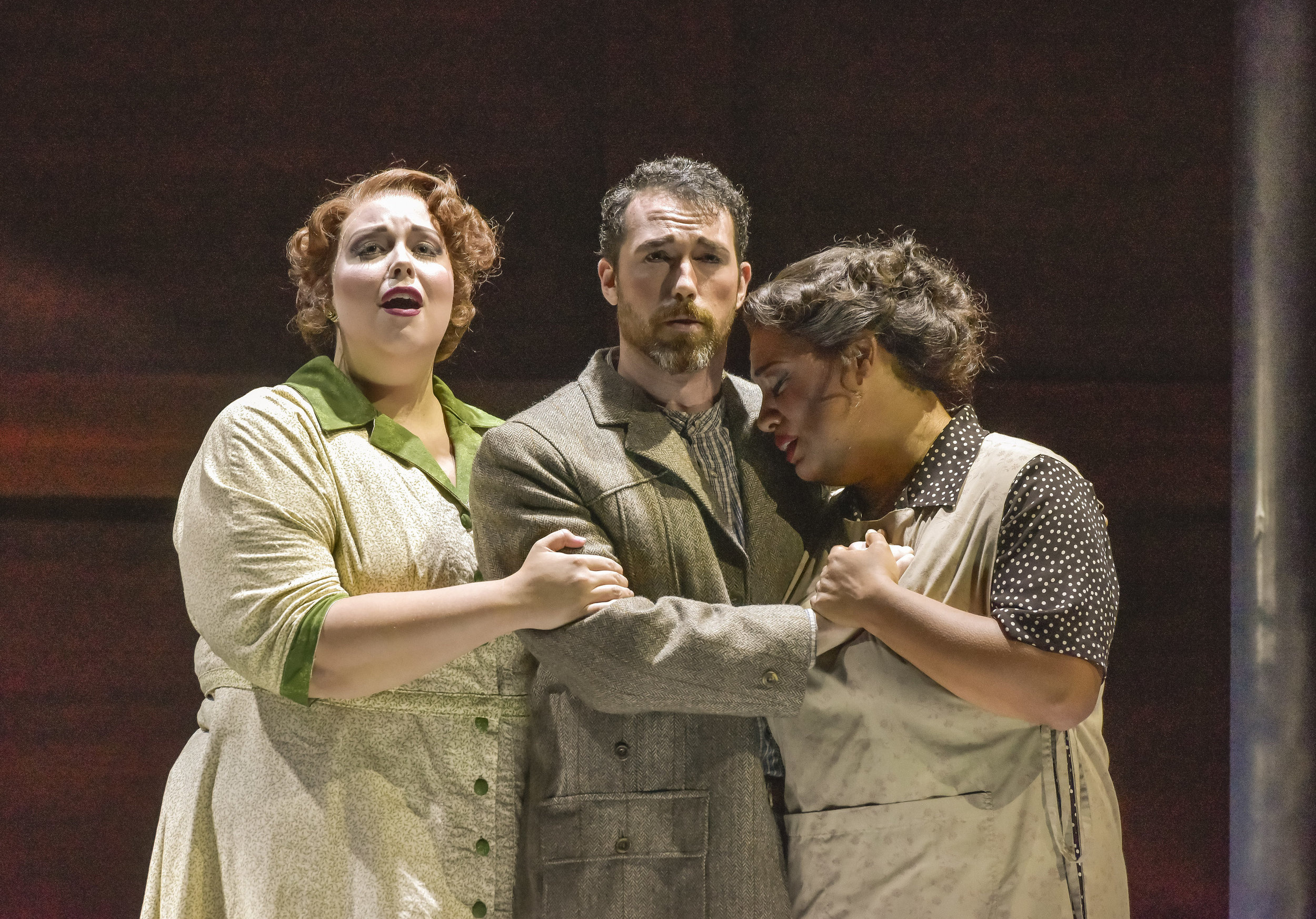
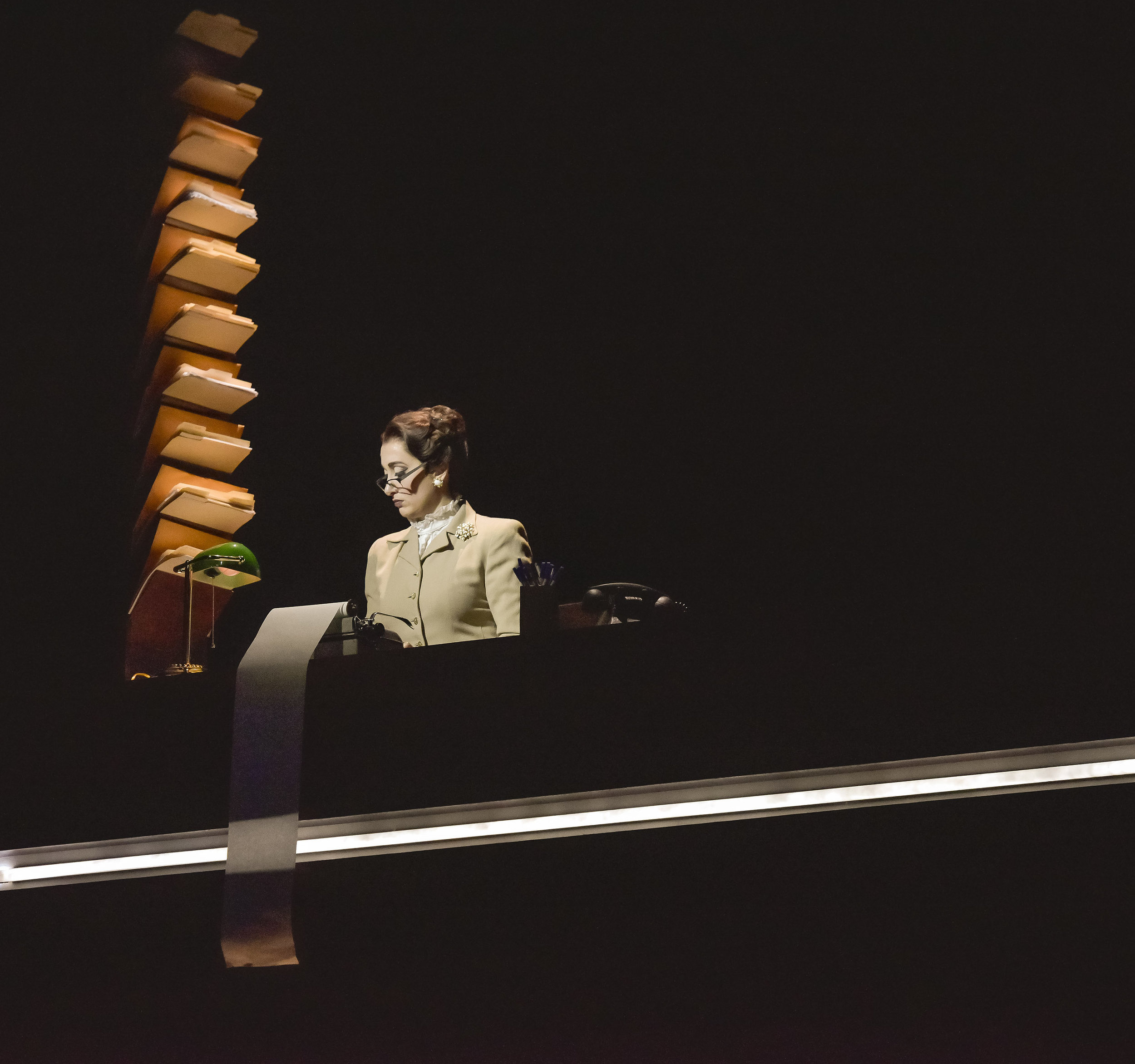
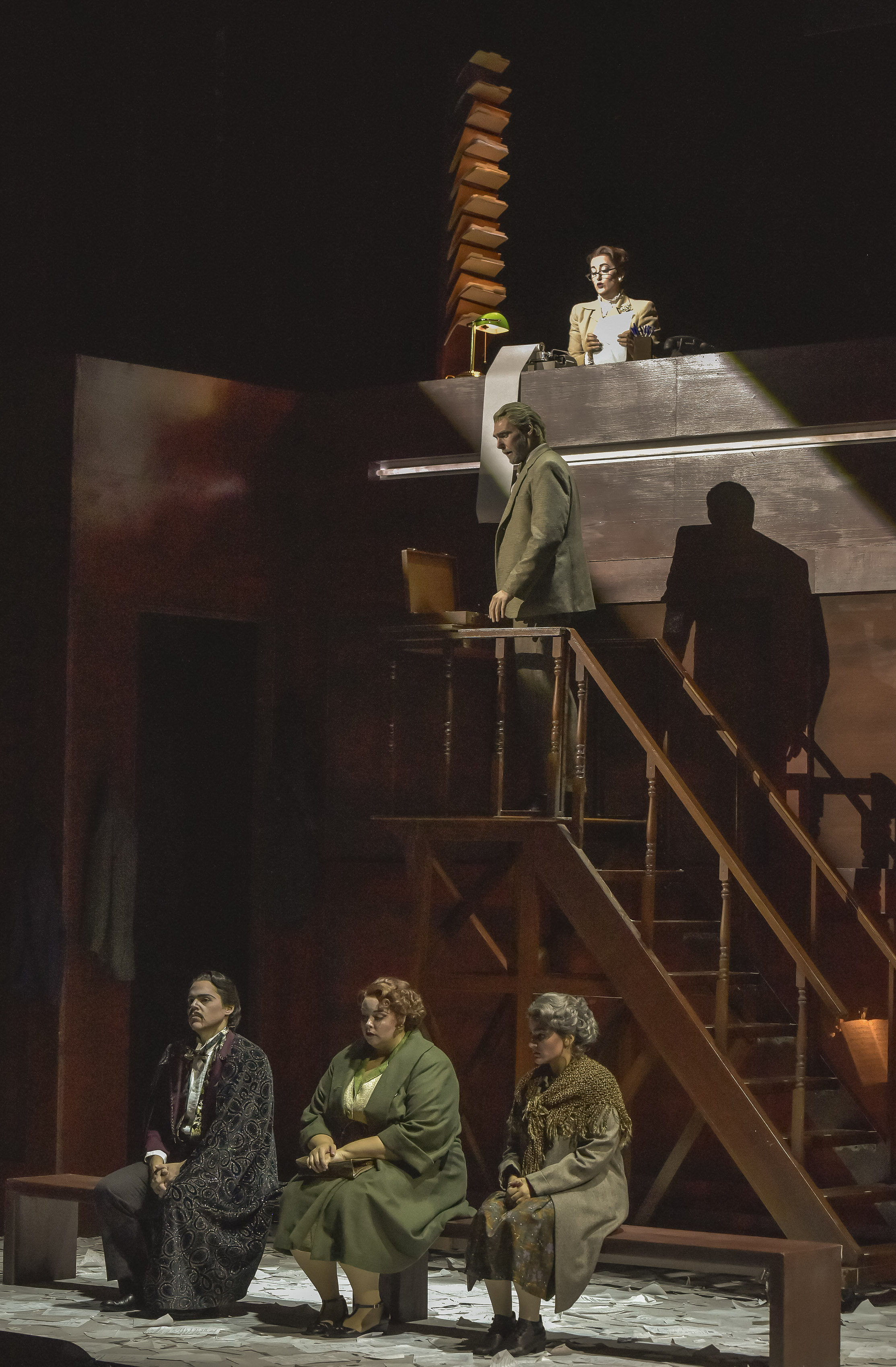
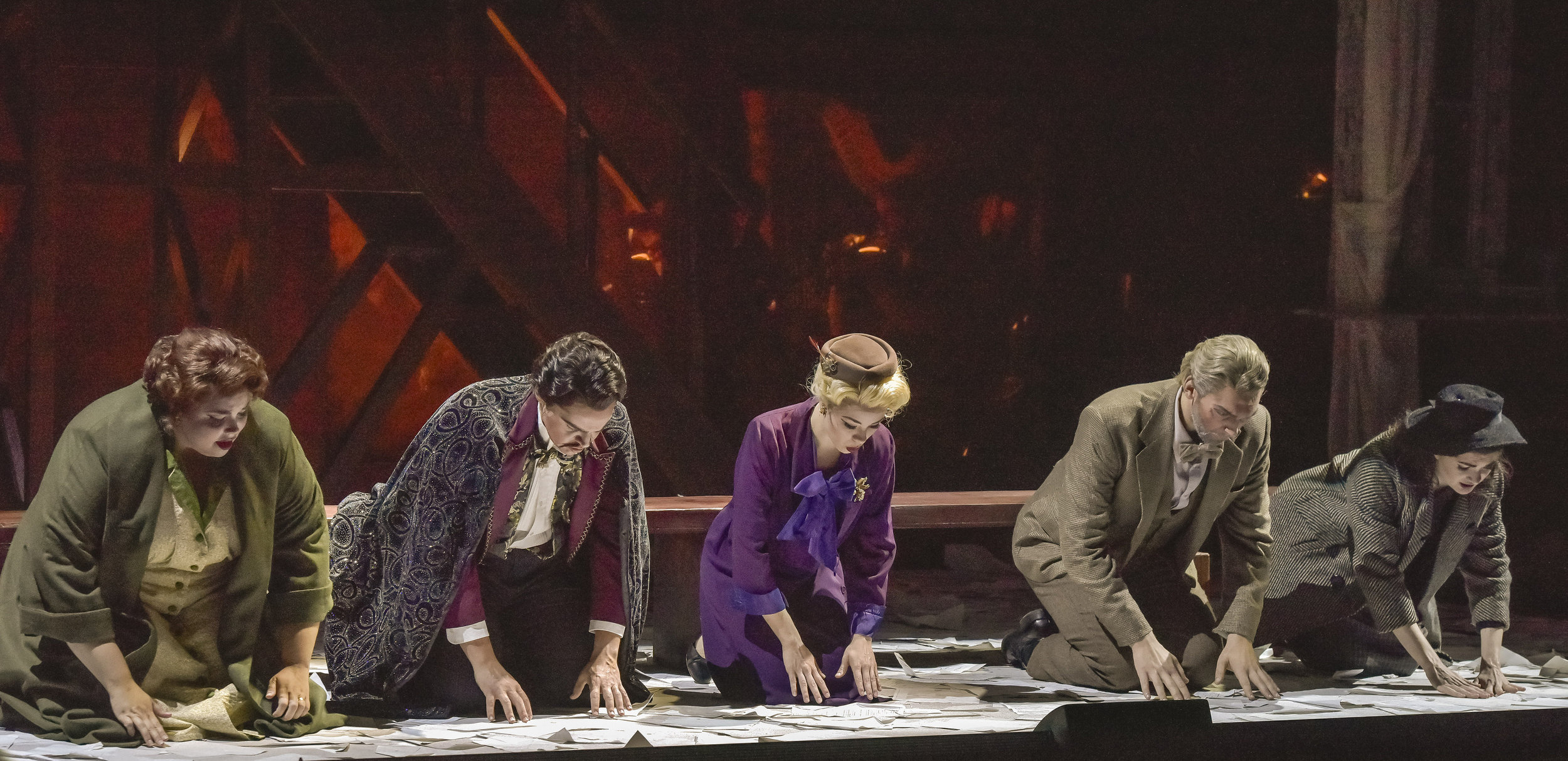
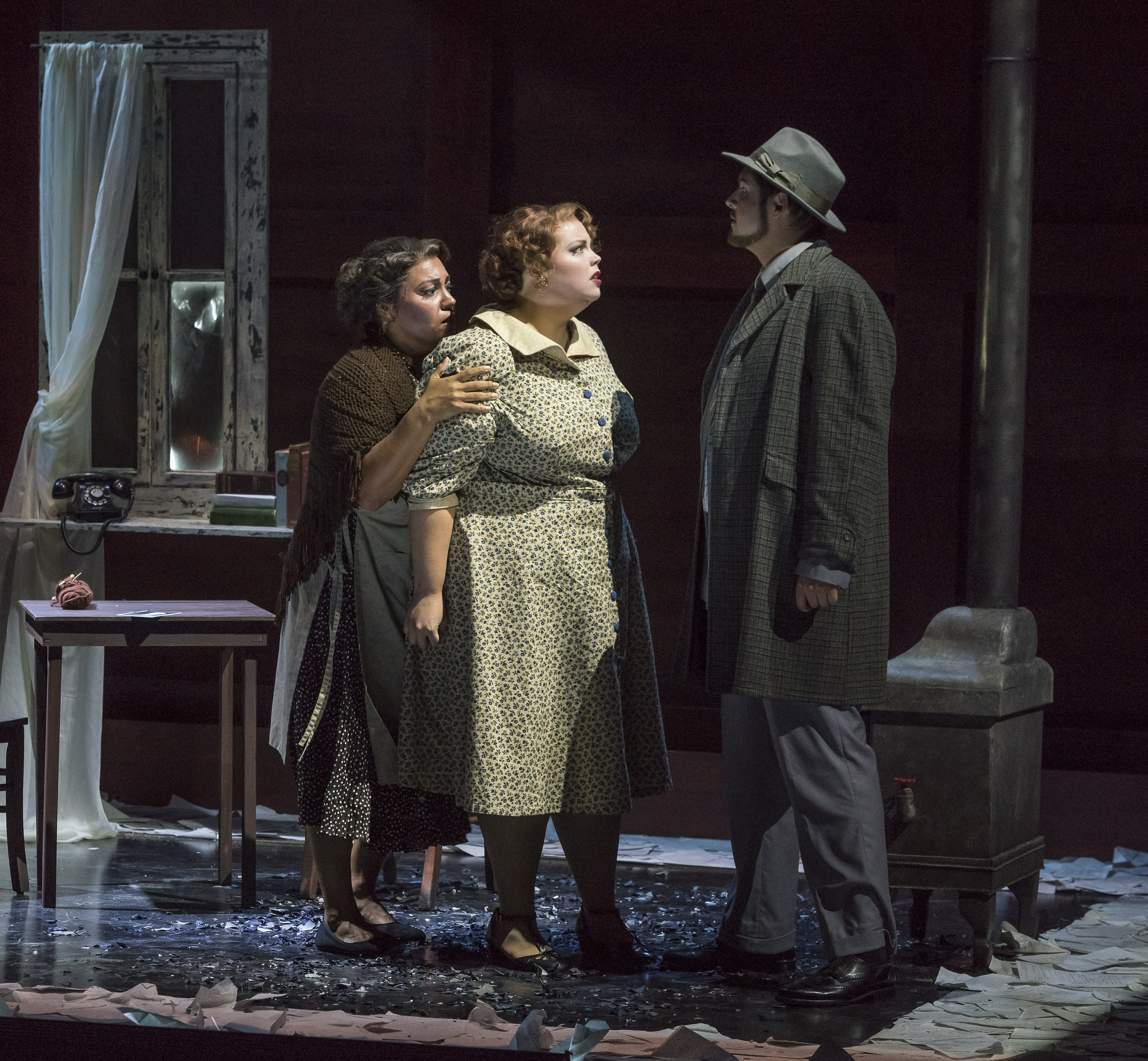
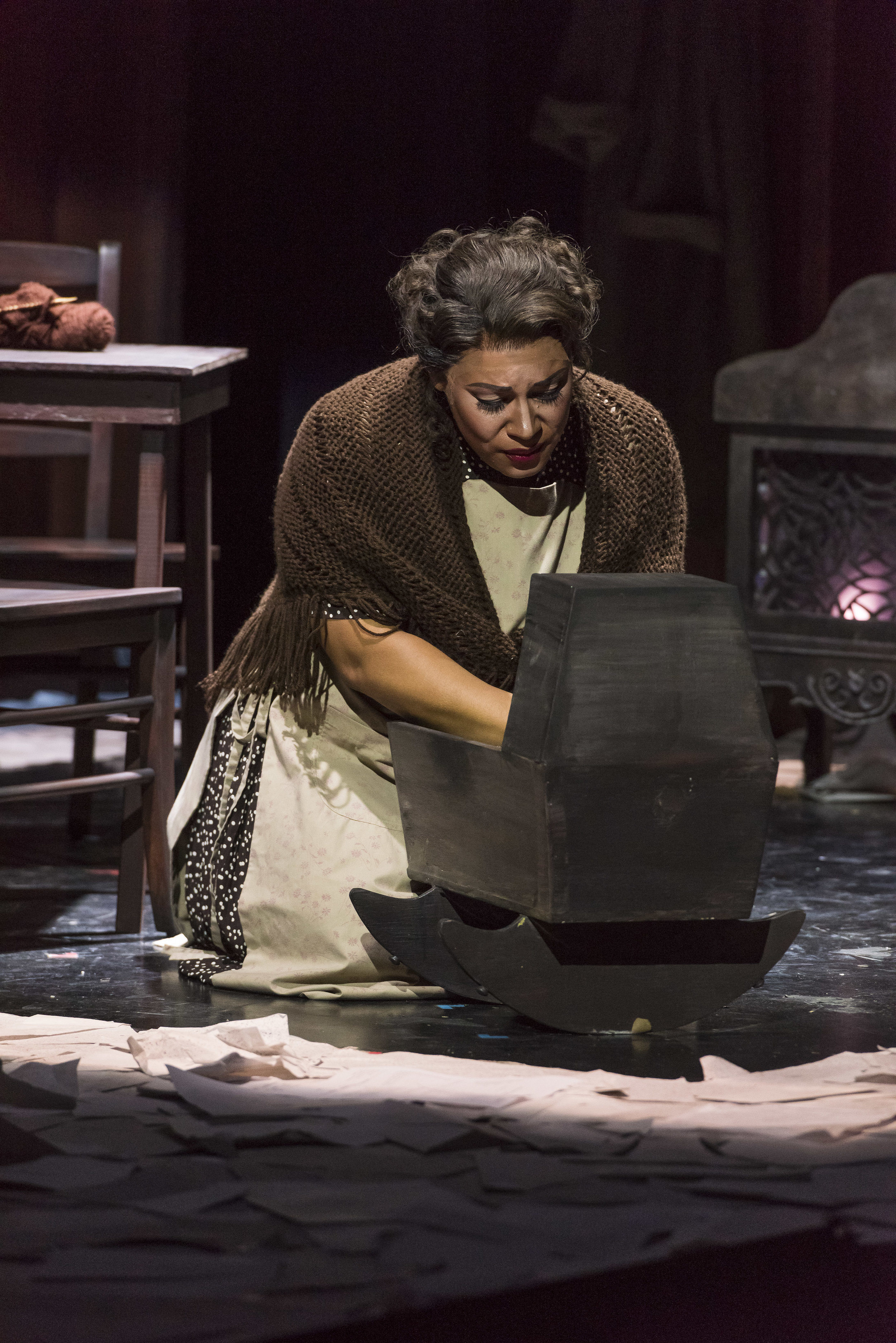
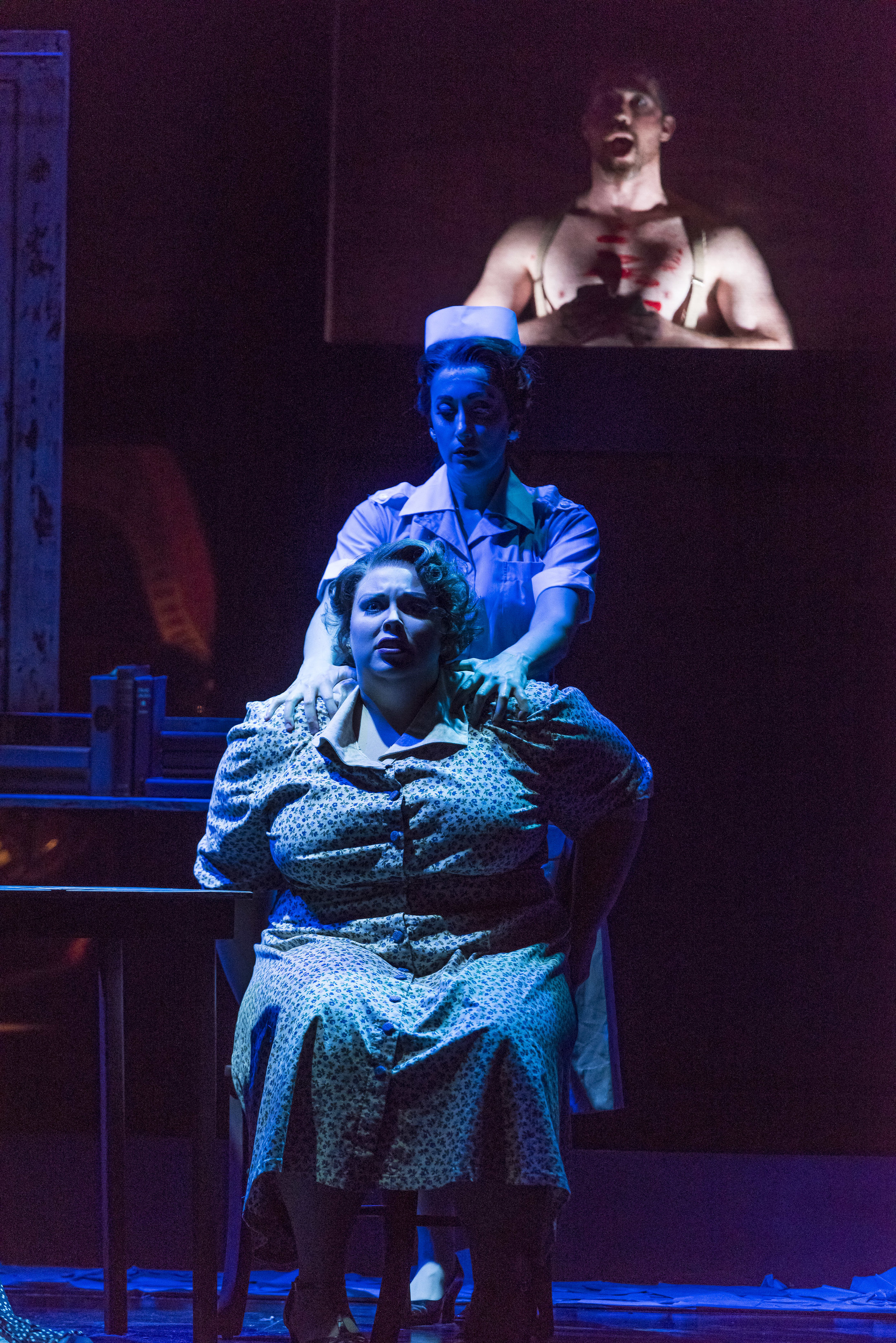
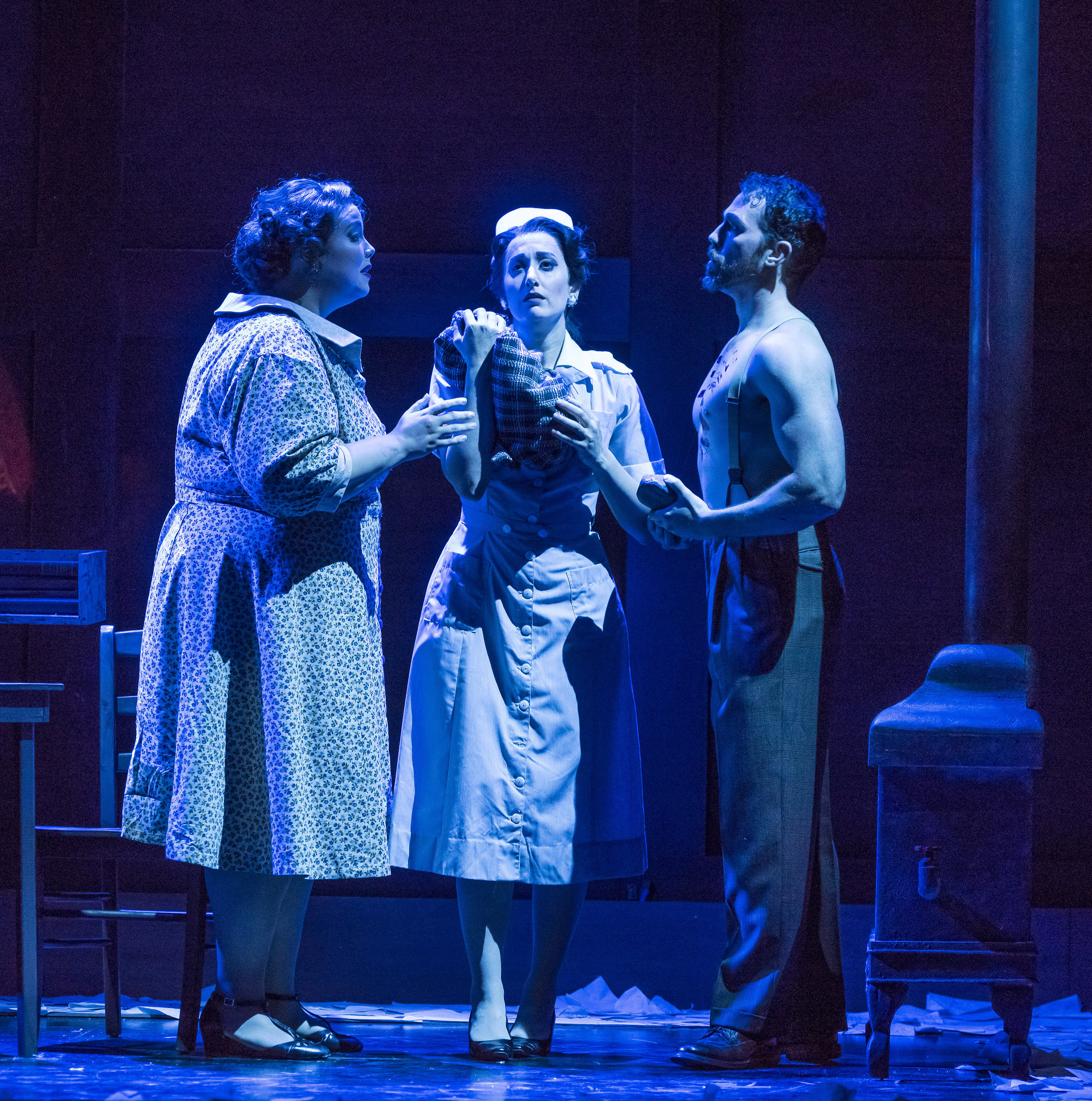
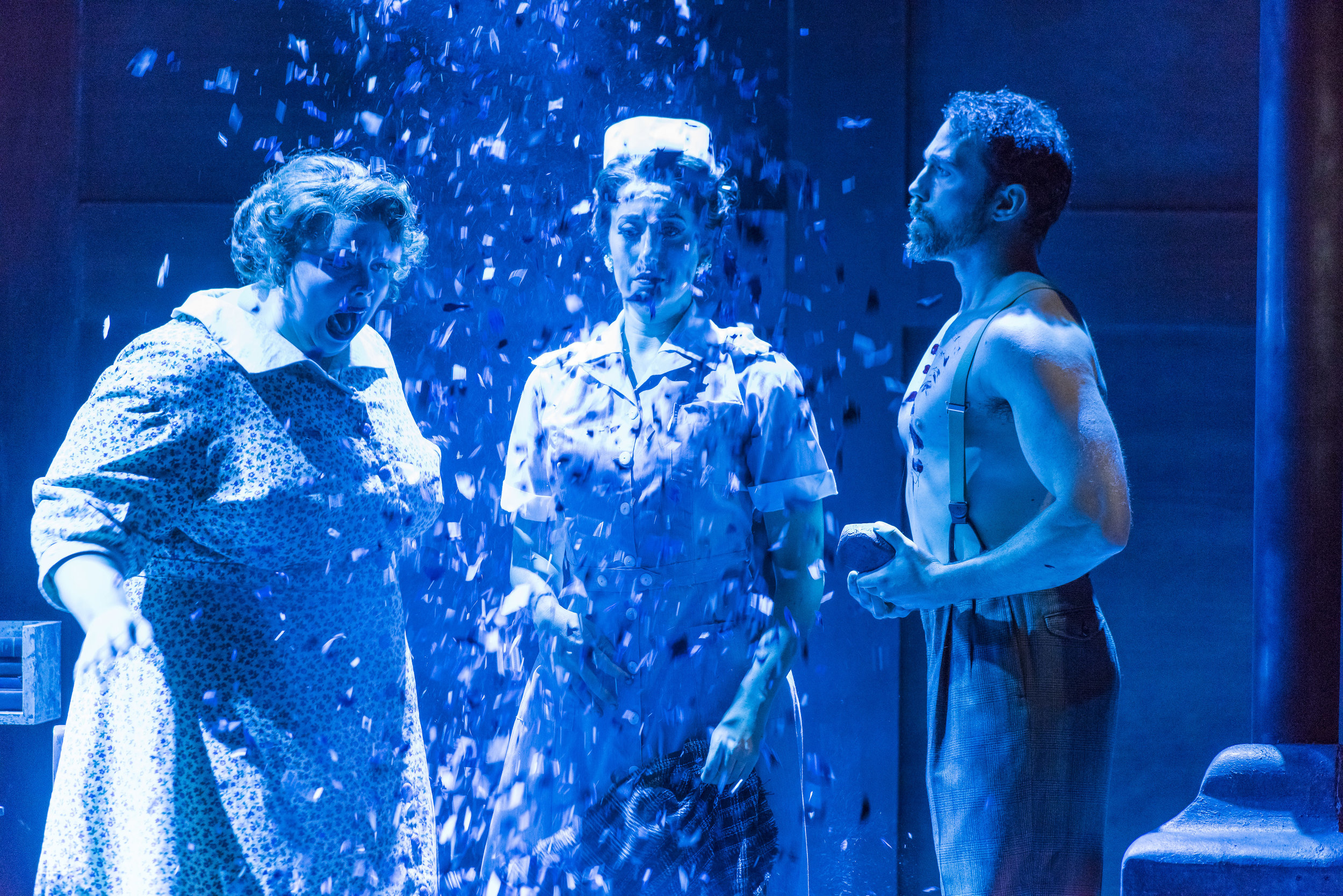
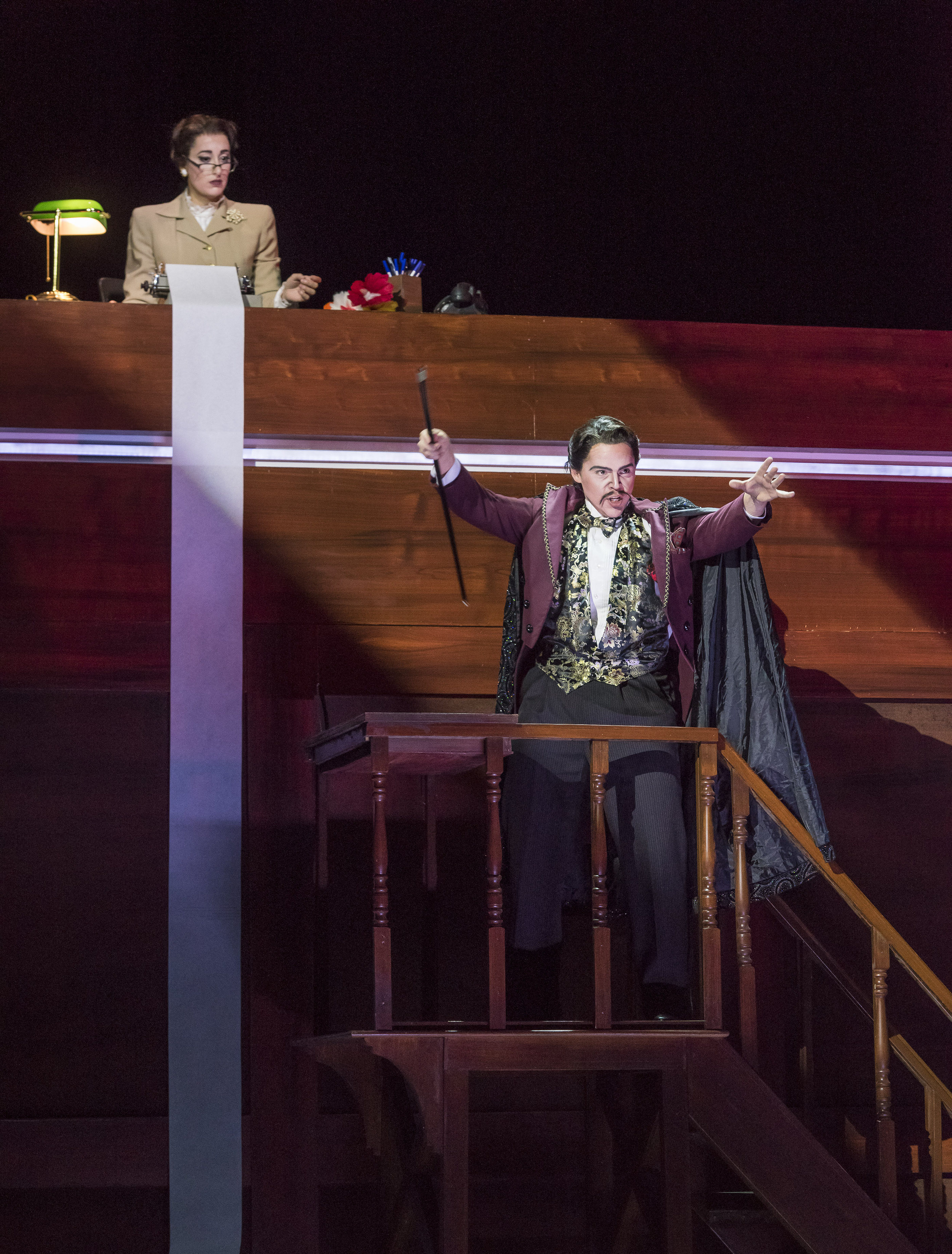
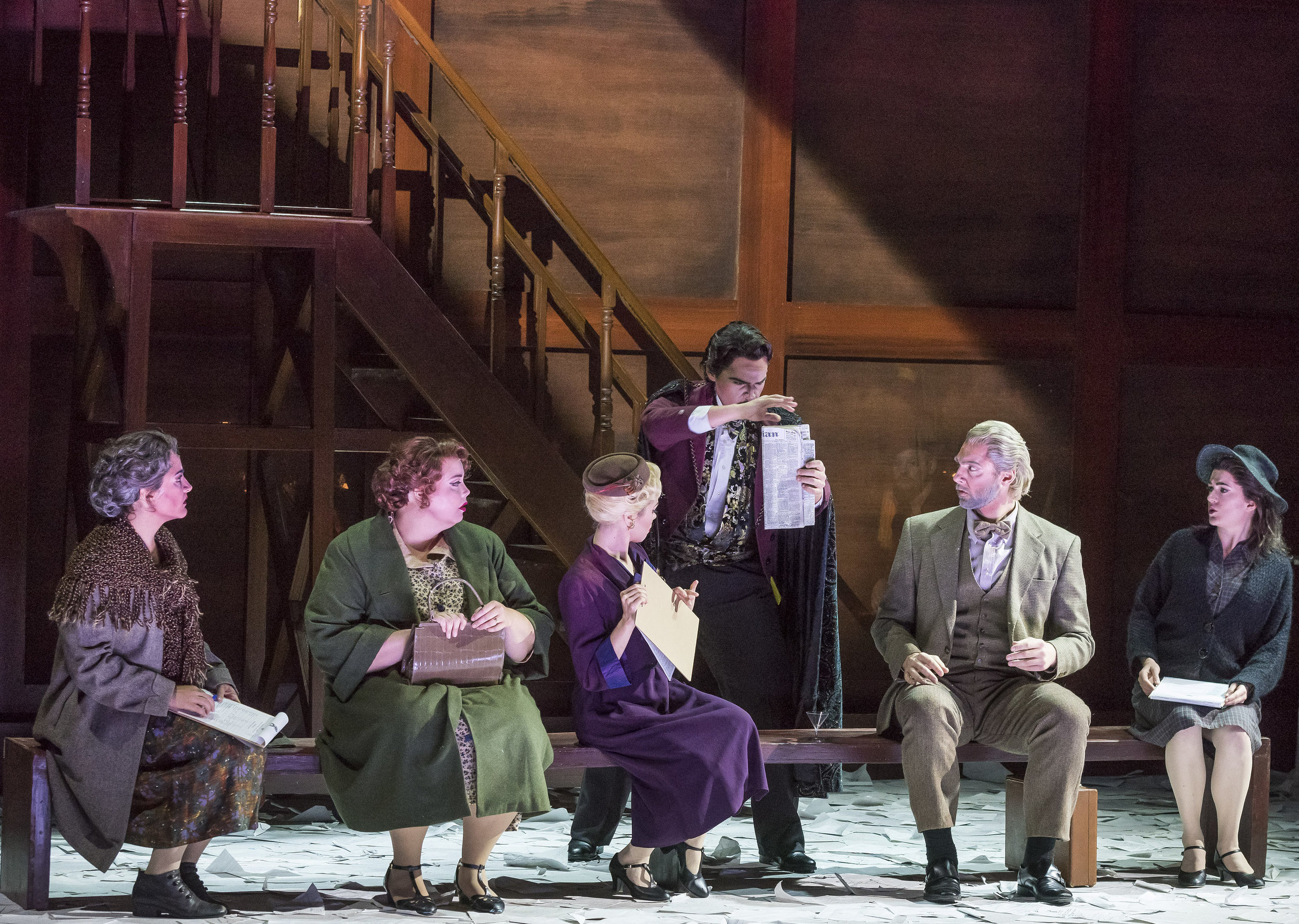
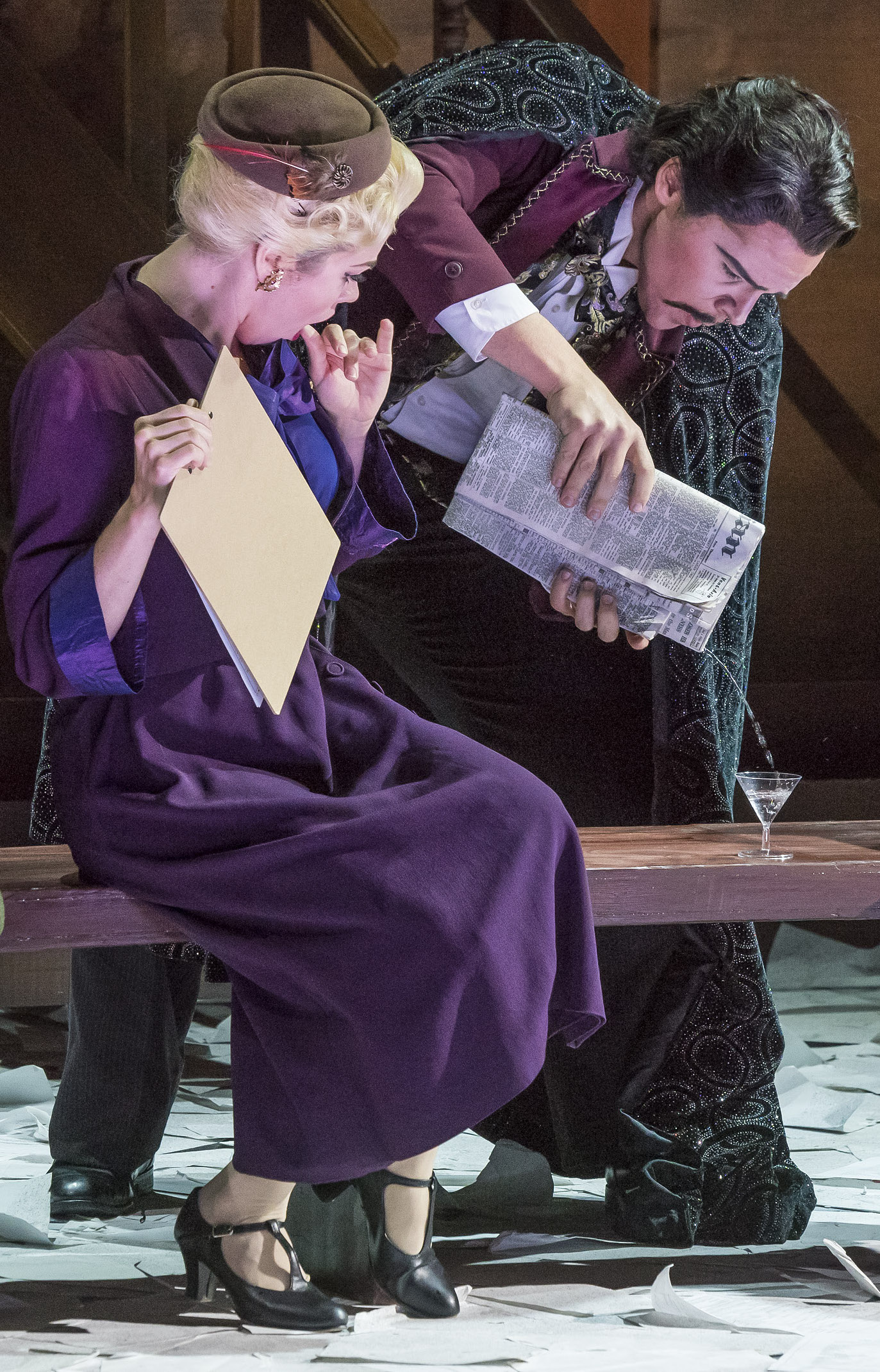
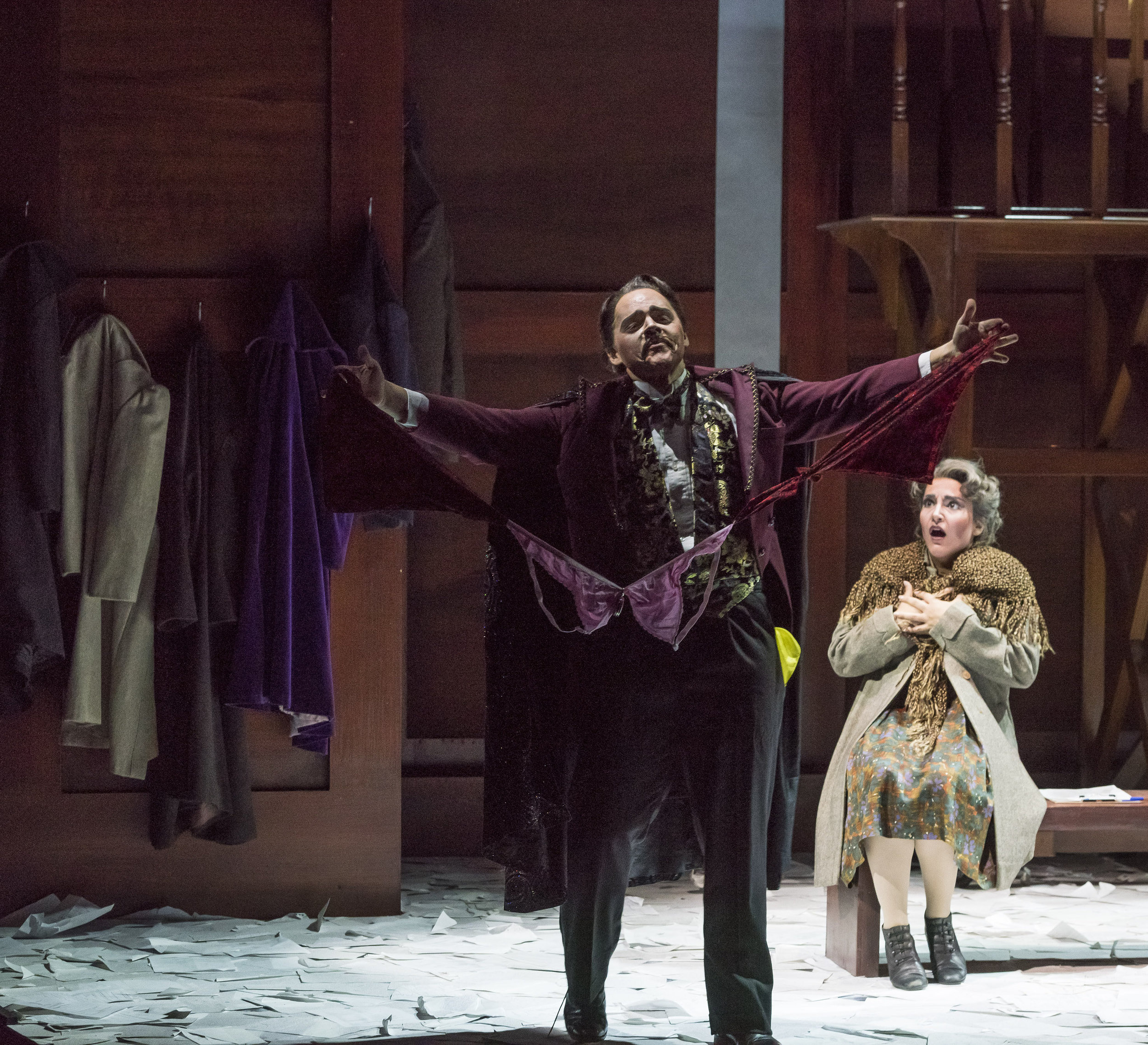
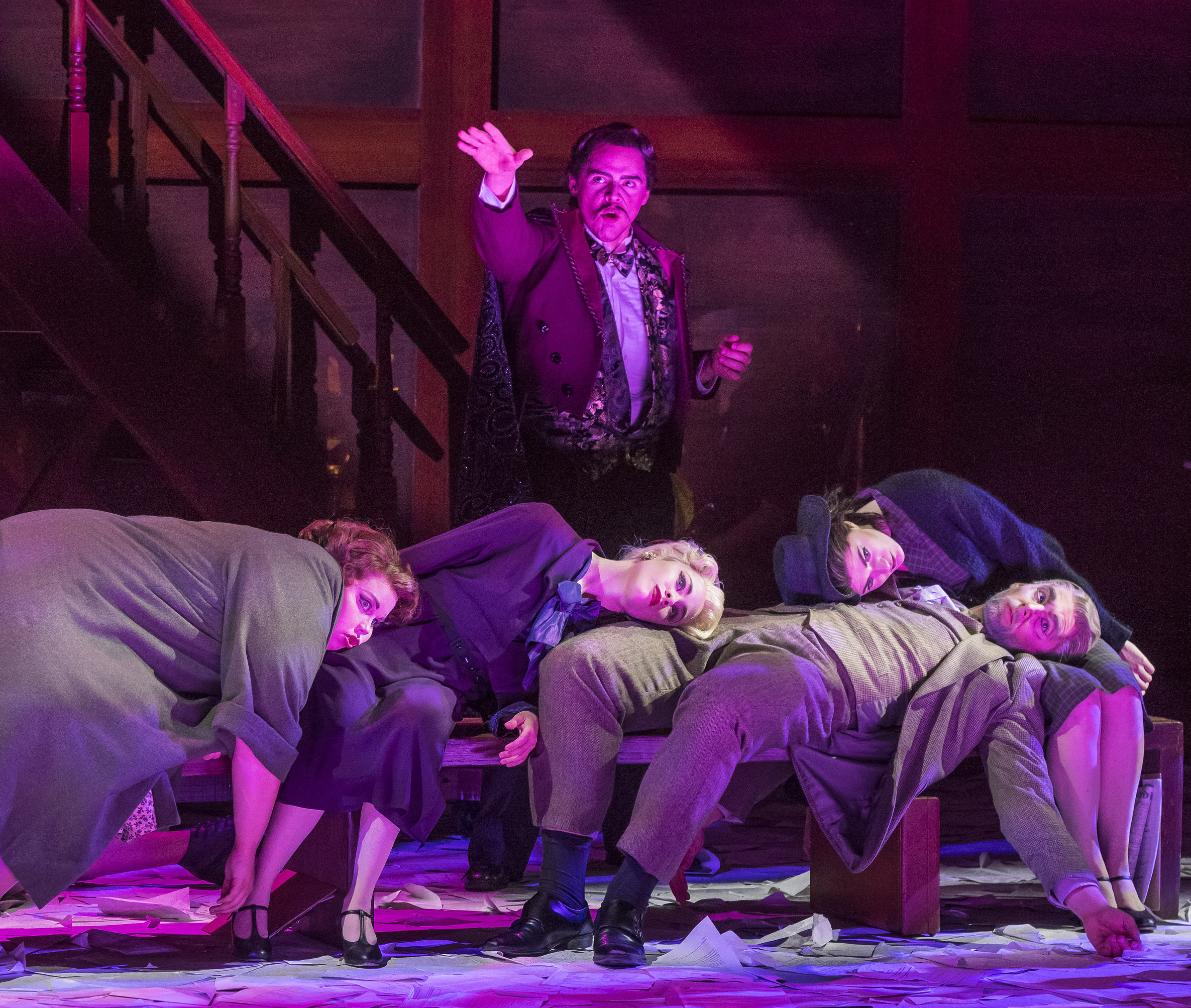

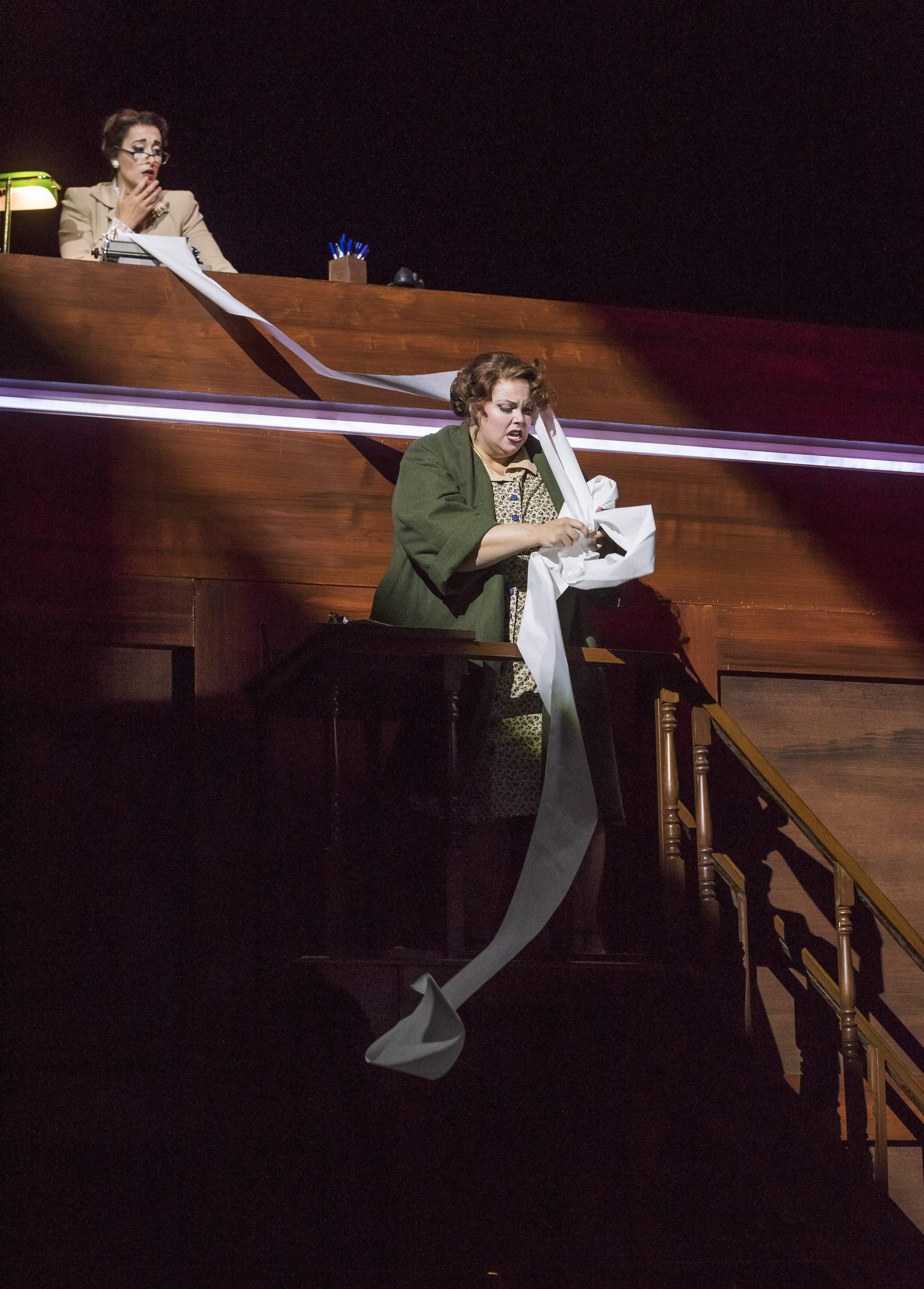
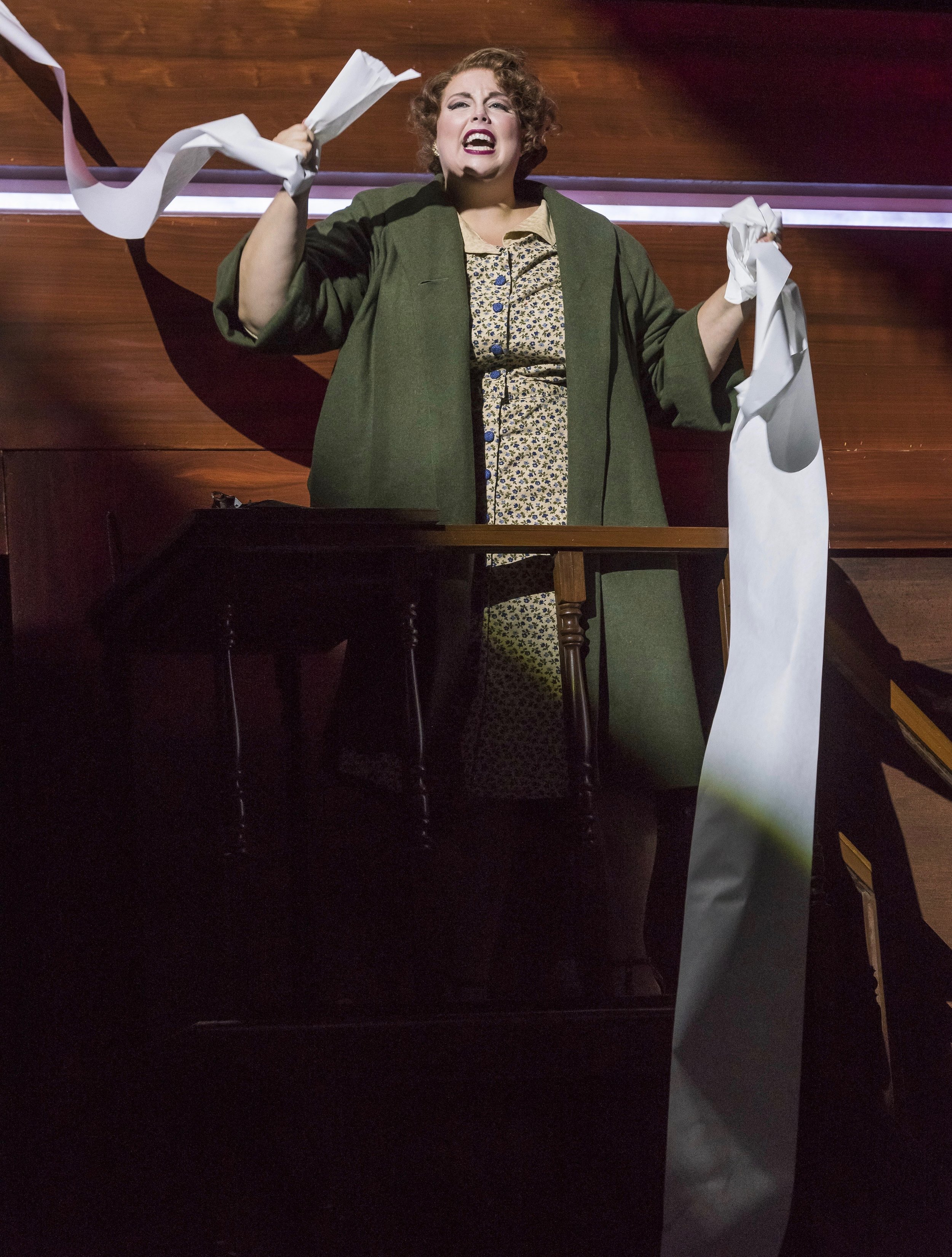
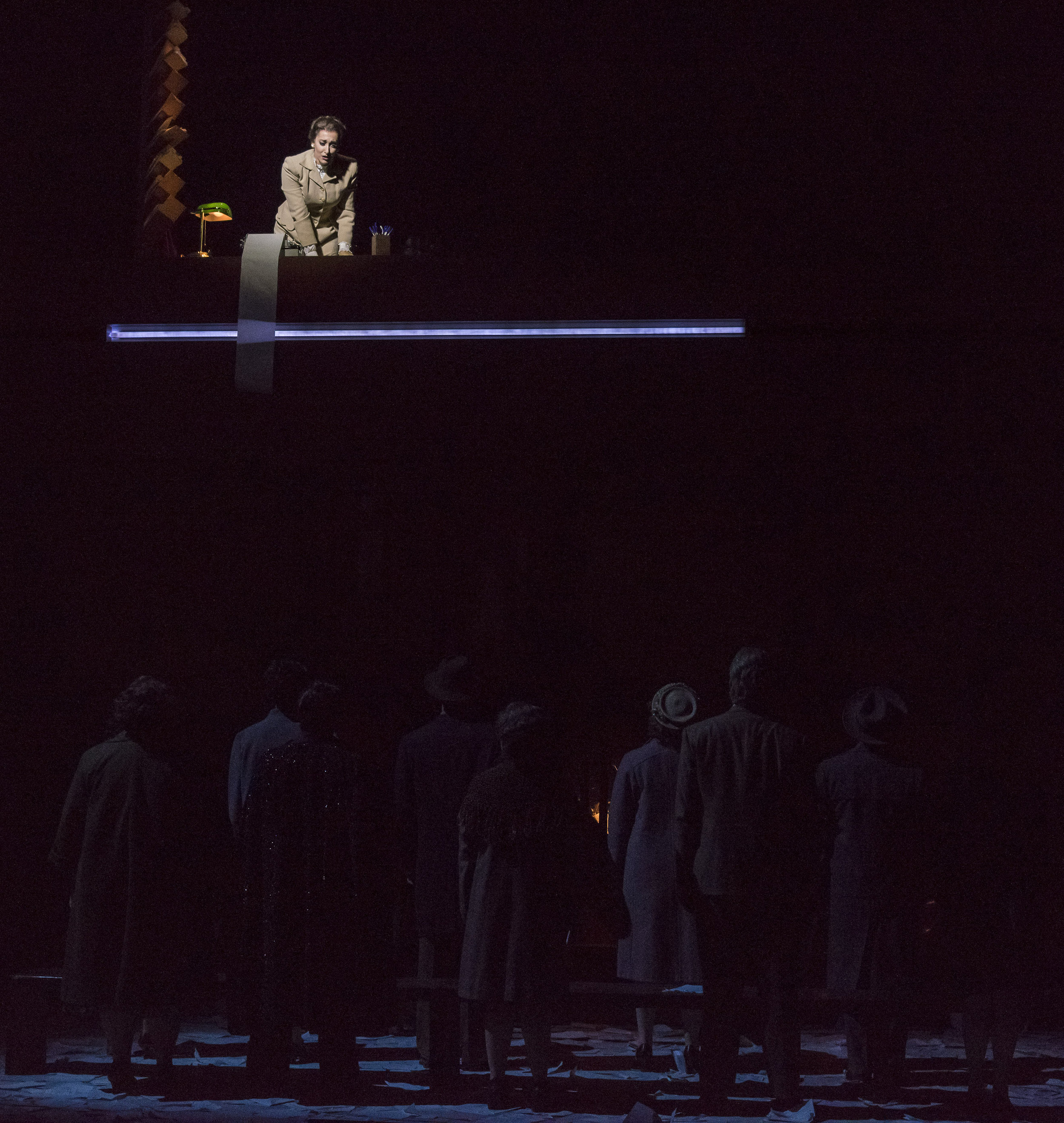

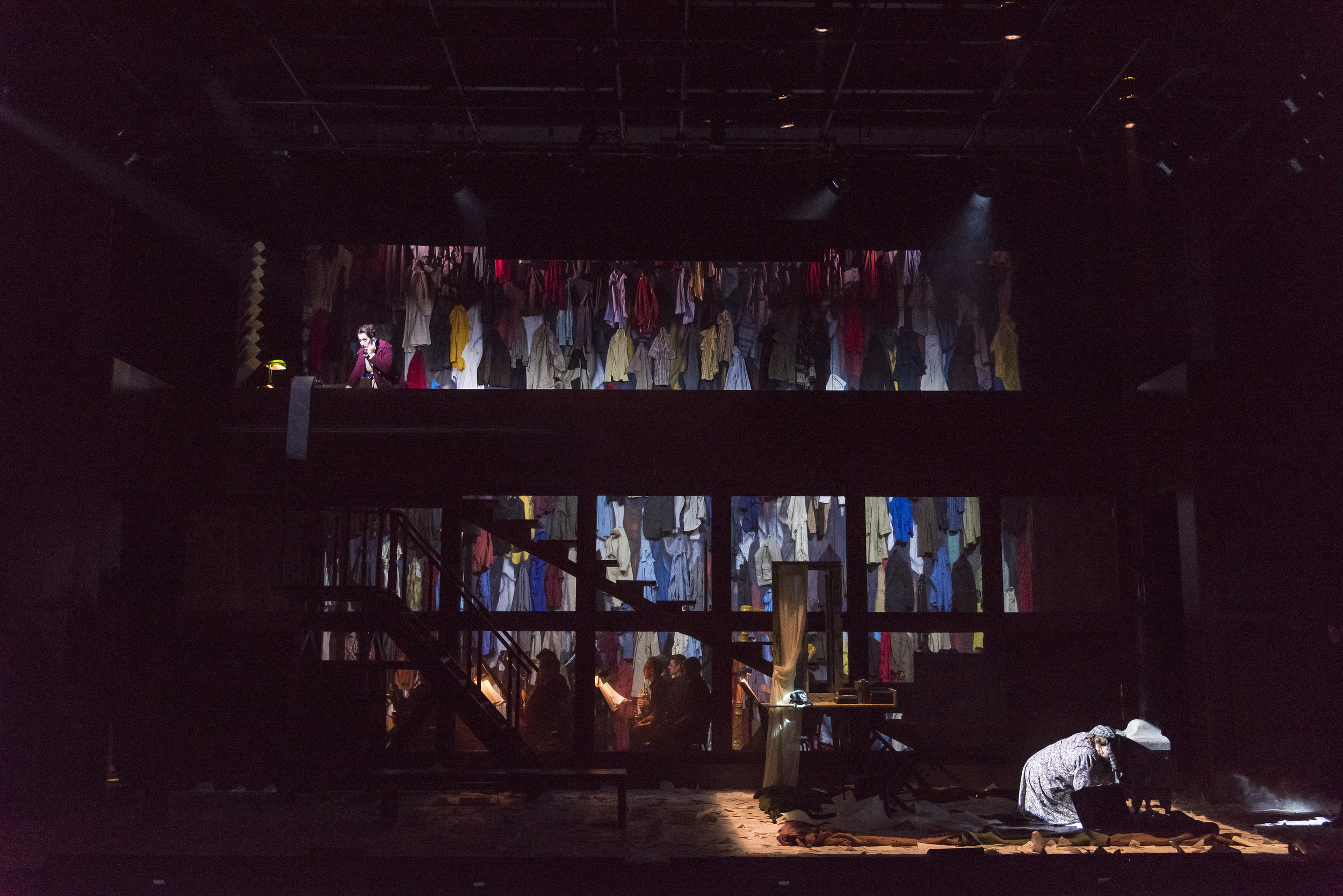

“Opera Saratoga’s Artistic and General Director Lawrence Edelson has tackled vital political issues in his programming before, but even he can’t have realized how timely Gian Carlo Menotti’s Cold War “Broadway opera” The Consul (1950) would be this summer. Seen on July 9, Edelson’s production proved tight and riveting.”
- Opera News
Now in its fourth season under the leadership of Lawrence Edelson, Opera Saratoga has redoubled its commitment to producing modern operas, and is doing so at a very high level... Gian Carlo Menotti’s “The Consul” (1950) is an American classic, and although its story—about a persecuted family applying hopelessly for asylum in a neighboring, unidentified country—has particular resonance today, Opera Saratoga’s polished staging, directed by Mr. Edelson, mostly eschewed up-to-the-minute references and let the piece speak for itself... The staging embraced the full-throated Puccini-esque melodrama of Mr. Menotti’s score and dramaturgy.”
- The Wall Street Journal
The Consul is not an opera of escape, set in some faraway time and land where merry widows or consumptive courtesans or Rhinemaidens hold forth for a few hours’ distraction. No, the 1950 opera, with music and libretto by Gian Carlo Menotti, reflected a post-World War II anxiety about totalitarian states when it premiered, and the new production by Opera Saratoga offers dismaying relevance to today’s world... director Lawrence Edelson, doesn’t push any particular contemporary resonance. He doesn’t have to, instead letting magnitude of Magda’s growing frustration stand in for all individuals stonewalled by the impersonal, implacable work of faceless bureaucracies run by those who unquestioningly accept that the way things are is better than what they might be... The unit set, by Cameron Anderson, features on one half a tall, wood-paneled back wall that has the imposing authority of an immense magistrate’s bench. At the top sits the secretary of the consulate... clackety typewriter at ready. When, to end the second act, Magda finally breaks down and rants at the secretary in an aria of frustration, it’s a moment of walloping emotional catharsis that deserves every second of the extended applause it earns. When neither piteousness nor reason nor sheer perseverance offer a way forward, a pernicious hopeless can spread. Edelson’s production is so complete in its grimness that what at first seems like an obligatory moment of comic relief, a magician (Tyler Nelson) who uses his skills to try to win favor from the secretary, feels unwelcome, unnecessary. But there’s more at work even there, with his hypnosis of others in the waiting room becoming an unsettling metaphor for the manipulation of the masses by unexpected sources.”
- The Times Union
Director Lawrence Edelson directed the production with a sure touch and a brilliant use of space.
- Words and Music
Opera Saratoga’s third offering of the season, Gian Opera Saratoga deliver(ed) a spellbinding production of The Consul. It’s no wonder why the opera received the 1952 Pulitzer Prize. Menotti, who also wrote the libretto that was sung in English, focused on issues that plague the world today: indifferent bureaucracies; the desperation of people attempting to flee police states; the banality of evil when ordinary people just follow the rules of corrupt systems; the arrogance of those in power. With current events in the minds of many in the sold-out crowd... everyone (was) spellbound.
- The Daily Gazette
The Consul maintains interest by expertly varying highly wrought drama with sequences of touching introspection, unexpected levity, and even surrealism. Along with sweeping echoes of Puccini, one finds something of the existential absurdity of Samuel Beckett, the dark hypnagogia of Franz Kafka, and even the epic protest impulse of Bertolt Brecht... Lawrence Edelson has directed this production with a sure hand and a well-tuned ear for all of the work’s daring, sometimes saltatory leaps among domestic melodrama, Freudian dream sequence, and vaudeville pastiche.
- La Scena Musicale”
